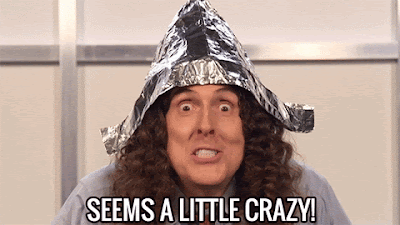 |
| Little Man With Big Ego |
Yes, these are the times that test the mettle of a leader. To quote Thomas Paine from his December 23, 1776 article titled The Crisis, “THESE are the times that try men's souls. The summer soldier and the sunshine patriot will, in this crisis, shrink from the service of their country; but he that stands by it now deserves the love and thanks of man and woman. Tyranny, like hell, is not easily conquered; yet we have this consolation with us, that the harder the conflict, the more glorious the triumph. What we obtain too cheap, we esteem too lightly: it is dearness only that gives everything its value.”
Even with his early missteps, Donald Trump could have risen to the occasion and taken charge. He could have really shut down virtually all foreign travel into the US. He could have nationalized the production of PPE for our hospitals. He could have set aside his ego and listened to the experts in the field of epidemiology. He could have established early shutdowns and quarantines. He could have prioritized contact tracing. He could have not dumped responsibility on the various 50 state governors leading to confusion and chaos. By adopting any or all of these plans, he could have flattened our infection curve, minimized our human losses, and lessened the financial impact on our nation. That would have been what a great leader would have done. Sadly, such clarity of thought is not in the Trump wheelhouse. His concern seemed to be, “what if I make a mistake” and “how will this affect my reelection chances?” His timidity of purpose belied his normal bluster. His claims of mental acuity and enlightenment were shown to be merely the illusions of a showman. Donald Trump proved to be that “summer soldier” and “sunshine patriot” despised by Thomas Paine.
Trump’s second opportunity came with the multi-events of racial unrest that gripped our nation even while we feared for our lives with the viral epidemic. Donald J. Trump had risen to fame and fortune exploiting racial division and now he had a chance to make amends for his prior attitude and mistakes. Alas, it was not in his nature to alter his racist disposition. It was always about the undercurrent of racial tension flowing through the mostly white audiences of his campaign rallies. He could not abandon the crowd that brought him to the dance; especially for some singular event that would surely fade away in the 10-day news cycle. That didn’t happen. In the racially charged atmosphere, invigorated by the thinly veiled racist comments, attitudes, and legislative actions of our president, there was another event and then another. The protests spread from city to city and then they went global.
History I fear will not be kind to Donald Trump. Kennedy had his Cuban missile crisis and his Bay of Pigs. GW Bush had Hurricane Katrina and 911. Herbert Hoover had the Great Depression. Jimmy Carter failed to end the Iranian hostage standoff until the last minutes of his presidency. Roosevelt, the first Democrat to win the presidency since 1892, took office with the clouds of WWII on the horizon. He invited Republicans to the White House to promote unity. Lyndon Johnson visited a darkened New Orleans hurricane shelter after hurricane Betsy and, using a flashlight on his face called out, “I am your president and I’m here to make sure you have the help you need.” Contrast that last one with Trump’s handling of Hurricane Maria when he attempted to deny disaster relief to Puerto Rico because he thought they might use the money to pay off old debts. Almost all presidents will be tested in their term in office. It is the nature of the job. It is how they handle times of crisis for which they will be remembered. Trump won’t be long remembered for his wall or other missteps, but he will be remembered for the 122,000 Americans dead in the first six months of 2020 which is more than double our losses in Vietnam. How many of these losses could have been prevented with great leadership? We will never know because such leadership didn’t exist on Trump’s watch.
I believe the fairy tale that will surely be the Trump legacy will begin with, “Once upon a time, in a land too close for comfort...” As world leaders go, Donald Trump will be seen, not as a great one but more like another famous Don who tilted at windmills and jousted with imaginary enemies. He will be remembered for his nationalism, his divisiveness, and his mismanagement of two major crises near the end of his term that resulted in economic meltdown and massive unemployment. He will be known for the needless loss of life due to a pandemic and his failed attempts to deal with that crisis. He will be known for his failure to heal, or even attempt to heal the wounds of systemic racism. To quote Walt Kelly’s Pogo who was paraphrasing Commodore Oliver Hazard Perry’s famous quote during the War of 1812, “we have met the enemy, and he is us.”
 |
| Pogo |
Yes, Trump had his opportunity for greatness, even in light of his previous misdeeds, but he missed the boat. He squandered two crises where had he managed them properly his chances of reelection would have been high. Certainly higher than his current 40% approval rating would show. Frosted Flakes are G-R-E-A-T, but Donald Trump, not so much.























